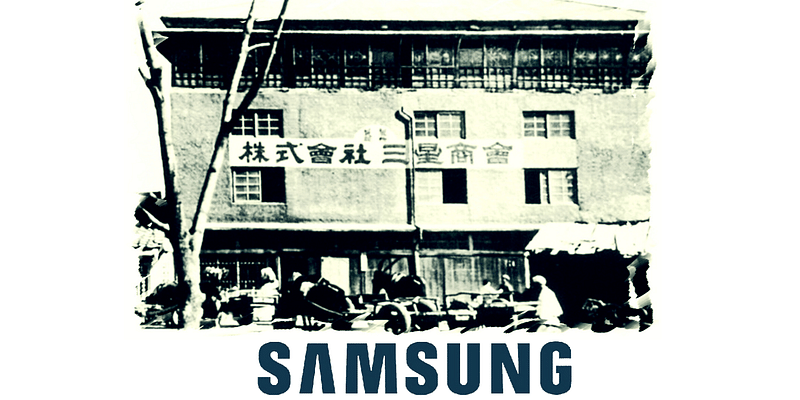How SBI’s Youth For India Fellowship is transforming the lives of programme beneficiaries in rural India as well as its Fellows
This post is sponsored by the SBI Foundation.
Last week, we brought you the stories of six SBI Youth For India Fellows, who were working to improve the lives of some of India’s most marginalised communities. Every year, the SBI Youth For India Fellowship gives young people, who want to make a positive change, a unique opportunity to work at the grassroots level with an NGO on a project of their choice. This week, we highlight the work of six more SBI Young India Fellows.
Ishan Marvel
Any journalist knows that the fastest route to disillusionment with the system is having to report on politics, crime, and the environment. It’s a fact Ishan Marvel is all too familiar with. The former journalist at Caravan Magazine was asked to cover a story on a drought in Mewat, Haryana. “Each year, the reporters and camera crews would turn up to meet the farmers and politicians, who knew that the same cycle would play out the following year. Nothing was going to change,” he says. This realisation made him quit and the desire to take a more hands-on approach to bring about change made him apply for the SBI Youth For India Fellowship.
Ishan now works with Gram Vikas at a residential school in Kankia, Odisha, where he has designed a course he calls BASIC, a mix of different subjects in addition to practical skills. This 10-chapter course takes the kids on a virtual tour throughout India and the universe. He also covers topics such as caste, culture, history, sex and gender, and popular media.

He says initially the children would not say anything even if they did not understand him. That’s when he decided to have discussions and encourage a culture of thinking and questioning.
He feels a platform like the SBI Youth For India Fellowship has helped open the children’s eyes to new opportunities. Many of them work on road construction during the holidays. They now talk about going back to the village and engaging with the community. They even ask about different career options.
Ishan is recording all his teaching sessions to create a module. He plans to return to his native Himachal Pradesh and continue educating students and teachers with local government support using the video module he has developed.
Prayag Ichangimath
When Prayag Ichangimath was studying to be a Mechatronic engineer in Bengaluru, he would often travel to Mysore to teach disabled children mathematics and English. When he returned the following weekend, he found that most of them had forgotten what they had learnt the week before. He realised that the issue was not with the children, but with the way they were being taught. He decided to apply for the SBI Youth For India Fellowship to spend a year helping train teachers to communicate with their students better. As an engineer, Prayag had also considered a career developing solar technology, but after a stint as a science teacher at a residential school in Shimla, he decided his path lay elsewhere.

Prayag multitasks at Barefoot College in Rajasthan and he says it’s one of the most fulfilling experiences of his life. He works at a school the NGO runs in Singla for children of nomadic origin, who have limited access to education. Prayag and his team convince the families to leave the children at the school, where they cover two-three years’ syllabi in a year. They then convince the parents to enrol the children in government schools and have seen a 65-70 percent retention rate. They also run night schools for children who have to go out for work during the day.
Prayag says they connect with the children using situations from their life. A recent survey by the team reflected a 60 percent change in career choices because of increased education. Many students go on to college and are thinking of government jobs or starting their own business. “Earlier, most would have gone into manual labour,” says Prayag.
Prayag says the SBI Youth For India Fellowship has given him everything and he wants to continue to travel all over the country help people. For now, he plans to continue teaching children science and setting up science labs in different parts of the country. “I feel 13 months is just not enough for the work that needs to be done. I wish I had 26,” he says.
Sharbani Chattoraj
Sharbani Chattoraj remembers joining State Bank of India the same year the SBI Youth For India Fellowship was instituted. At the time, she was a probationer and couldn't apply because the Fellowship was open only to confirmed officers. This year was her last chance to apply. As an SBI Youth For India Fellow, she has been working with the Gram Vikas Residential School in Kankia in rural Odisha.
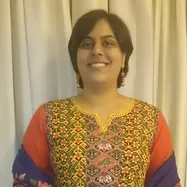
Sharbani, who wanted to work with high school children, decided to focus on soft skills. She started by teaching them computers, but realised they needed a more solid foundation in English, so that they are better equipped to explore more opportunities.
As many children are first-generation learners, they don’t have family support in terms of career guidance. “These communities are poor in the real sense of the term,” she says. She says that they are completely unaware of all the schemes that exist for Scheduled Tribes and BPL communities so many take to hard labour to supplement the family income.
Sharbani says the children are very talented and keen to learn and bridging the information gap would go a long way towards improving their lot. In February, she held a career counselling session where children were made aware of scholarships and quotas. She is encouraged by the fact that the kids now want to study further. “If there is even a 10 percent improvement because of our time here, that is enough.”
On the last day of school before the vacation, she asked students what they wanted to do over the break. “One girl said she wanted to teach others in her village about saving water. Another boy said he wanted to plant trees. I wanted to cry.”
Sharbani says the best thing about the SBI Youth For India Fellowship is that you have to live where you are working, which helps the communities accept the Fellows, and the changes they are trying to bring.
Sindhu Malavalli Sudarshan
Sindhu Malavalli Sudarshan’s father was a rural development officer and from an early age this afforded her an insight into how a majority of Indians really lived. After completing her degree in civil engineering, she felt disillusioned with corporate life and decided to look for an opportunity to work with the communities she had grown up seeing. The SBI Youth For India Fellowship, she says, gave her the opportunity to explore the development sector.
The best part is that Fellows have a lot of autonomy and can design their own development projects and decide their focus areas. “You can work at your own pace and no one puts any pressure on you.,” she says.
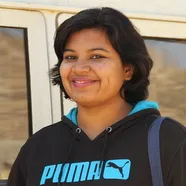
Sindhu, who is set to complete the programme in August 2017, has been working on creating rural eco clubs for children to improve waste management practices and WASH (Water Sanitation and Hygiene) practices.
Seva Mandir, the NGO she works with in Rajasthan, has been constructing toilets and educating people on how to use them. But they found adoption rates were low. “The women did not want to use the toilet because the only time they got to themselves, away from the pressures of the home and in-laws, was when they went to the fields in groups in the morning,” says Sindhu. The children, she says, were reluctant because they were claustrophobic.
The biggest challenge, she said was that despite wanting toilets, people were reluctant to use them. “Some use it as a storage shed for firewood,” says Sindhu.
Sindhu, who plans to do her Masters in Urban Planning and Architecture and work in the development sector, says that a programme like the SBI Youth For India Fellowship has a two-pronged effect. “An SBI Youth For India Fellow is never assigned to his or her home state, so you have to go somewhere new and learn their language and culture. The people too are excited to meet outsiders and hear their stories. You learn so much.”
Surendra Singh
When Surendra Singh wanted to return to India after working in Japan and Egypt, he decided he wanted to spend some time exploring rural India. The IIT Bombay graduate applied for the SBI Youth For India Fellowship hoping it would give him that opportunity to work in the development sector. Surendra is working in a village in Uttarakhand with a government primary school which is grossly understaffed.
There are five batches (1st to 5th standard) and only two teachers. Often, all the students are grouped together and the lessons are ad hoc. “I thought it would be a good idea to introduce ICT-based learning, where the teacher would teach a lesson and the kids could practice on the computer.,” he said.
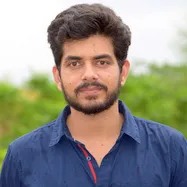
He managed to procure laptops via donation on which he installed Open Source software. His next task was to train the teachers. “The students, who are in Class 4 and 5, were seeing a laptop for the first time and were afraid to even touch the system. Today, they have come a long way and many are comfortable with the software that is being used as well,” he says. Surendra has also designed courses in Mathematics and Science for the kids to learn faster.
And it’s not just the students who have embraced this change. The teachers too were reluctant initially as they were older and unfamiliar with technology. But watching the kids take to their lessons encouraged them to shed their apprehensions. The teachers now use the software to maintain school and library records as well.
Surendra says that the SBI Youth For India Fellowship has changed him. “From travelling in Business Class and eating in five-star hotels, I now lead a much simpler life. Going out can mean playing with the children from the village. And I’ve never been happier,” he says.
Venkata Siva Prasad Chitta
A chance meeting with a colleague a former SBI Youth For India Fellow piqued Venkata Siva’s interest in the Fellowship. Hearing about the autonomy and the hands-on approach of the programme only encouraged him to apply for it.
He was assigned to work with Seva Mandir in Kotda district in Udaipur, Rajasthan where he decided to set up agri-digital clinics for tribal farmers. Venkata Siva and a former SBI Youth For India Fellow, Ruchinilo Kemp, joined hands to build an Android application called Meri Kisan Seva.
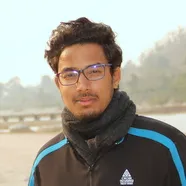
The app would provide real-time help to farmers by connecting them virtually to an agricultural expert. The platform allows for a dialogue on best practices while providing solutions for water management and pest control. The farmers can upload photographs issues they are facing along with a brief description, which is then taken up by an agricultural expert in Siva’s team whom they interact with over text and emails.
He says that the area he works in is very remote and the nearest highway is 70 km away. So connecting the farmers with the experts was a challenge. On the bright side, he says acceptance levels were very high and the farmers even want to get smartphones to use the app. Siva is currently in the process of connecting seedbanks to the farmers via the app.
He feels that the intervention by the SBI Youth for India Fellows really helps the communities they work with, impacting their lives and livelihoods in positive ways.
The SBI Youth For India Fellowship is funded and managed by the State Bank of India (SBI) in partnership with well-known NGOs. The aim of the fellowship is to solve rural India’s most pressing problems by giving educated Indian youth the opportunity to touch lives and create positive change at the grassroots level in rural India.
Remember, change begins with each one of us, and you too can help take India’s development story to those who need it most. Applications are now open for the 2017-18 batch of the SBI Youth For India Fellowship. The last date to register and submit the online application is June 9, 2017. Apply now.






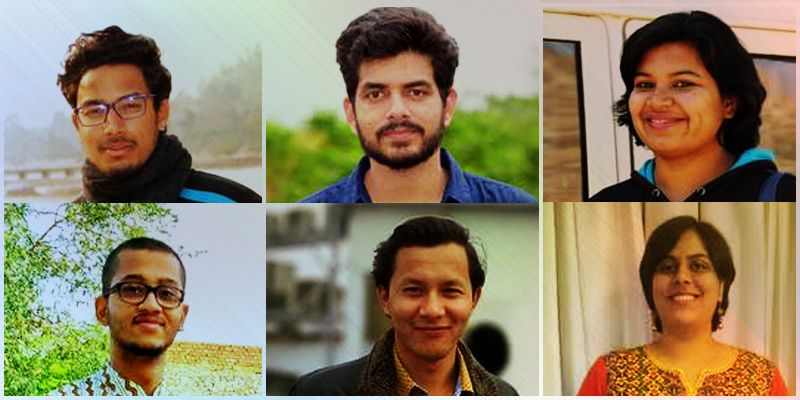

![[Funding alert] Ad-tech startup AdOnMo raises pre-Series A of $3M led by Ant Financial’s BAce Capital](https://images.yourstory.com/cs/2/bd251c602d6a11e9aa979329348d4c3e/SravanthandSandeepFoundersofAdonmo-1580397889237.jpeg)


